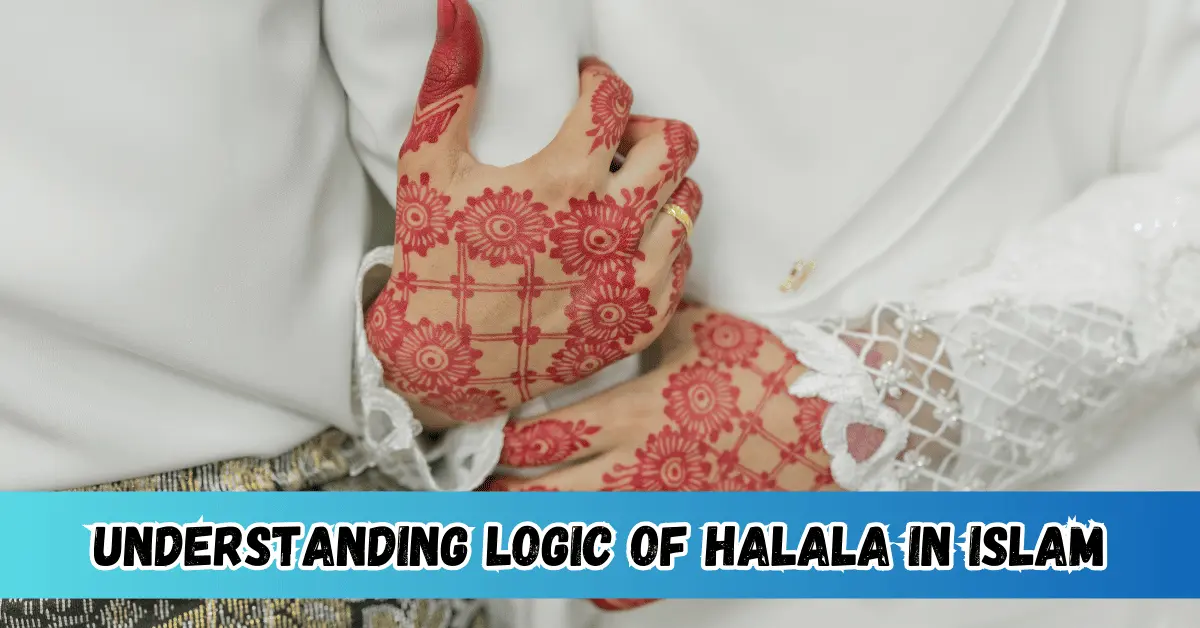If You are looking for the Logic of Halala in Islam,” After three Talaqs have occurred, a woman should complete her Iddah and marry another person with her consent. Then, the second husband divorces himself for some reason or dies after intercourse.
Now, after completing the Iddah, this woman becomes halal for her ex-husband and can marry him. In jurisprudence, this is called Halala.
What is Halala in Islam?
Halala in Islam refers to a specific practice related to divorce and remarriage. It is a process that allows a woman who has been divorced through Talaq (Islamic divorce) to remarry her former husband. However, this is only possible after she has married another man, consummated the marriage, and subsequently divorced or been widowed. The practice is rooted in Islamic jurisprudence and is intended to prevent the misuse of divorce, ensuring that it is not taken lightly.
The Concept of Talaq in Islam
Before diving deeper into Halala, it’s essential to understand the concept of Talaq in Islam. Talaq is the Islamic procedure for divorce, which the husband can initiate. There are different forms of Talaq, but the most severe is Talaq-e-Biddat or Triple Talaq, where the husband pronounces divorce three times in one sitting. Once this form of divorce is declared, it is irrevocable, and the couple cannot remarry unless the wife undergoes Halala.
The Purpose and Significance of Halala
Halala’s primary purpose is to prevent hasty divorces. In the early days of Islam, it was observed that some men would divorce their wives in a fit of anger and then regret it later. The Halala process serves as a deterrent, as it requires the woman to marry another man, consummate the marriage, and then be divorced or widowed before she can return to her former husband. This lengthy and often emotionally challenging process is meant to ensure that divorce is considered seriously and not done impulsively.
Halala Meaning in English
It is in the Holy Qur’an:

Logic of Halala in Islam Hadith
A woman came to the service of the Holy Prophet (PBUH) and began to say that my husband, Rafa’a (RA), had divorced me three times.
Later, Abd al-Rahman bin Zubair (RA) became my husband but could not pay the conjugal rights. Hearing this, the Prophet smiled and said:
Maybe you want to go back to Rafa’a. This cannot happen unless the other husband enjoys you and you enjoy him.
That is, after three divorces, it is not enough to marry another person; it is also necessary to have intercourse with him.
What is Nikah Halala?
- After triple Talaq, a woman should complete her Iddah from her previous husband.
- Then, marry another husband.
- Have intercourse with another husband.
- Separation from the second husband due to divorce or death, etc.
- The period of iddah the second husband should pass.
If these conditions are fulfilled, a woman can remarry her first husband.
Shariah ruling of Halala
A case of Halala has been passed, where after divorce, it happens naturally that the other person dies or divorces for some reason, and then the woman can remarry the first husband; it is not a sin.
But the other case is that marriage and cohabitation with someone else are done only for the purpose of becoming halal for the first husband. In this case, the marriage will be halal with the first husband, but the Holy Prophet ﷺ said:
Allah Ta’ala curses both the one who gives Halala and the one who is given Halala.
See More: Love Marriage in Islam
It is proved that Halala is not a favored practice, just as divorce is not a favored practice. Allah Ta’ala dislikes and permits. A curse was placed on the Halala so that people would not commit triple Talaq.
And if you have to give a divorce, give one so that reconciliation can take place. However, the person who commits injustice and divorces three times should have these rulings.
Frequently Asked Questions
What is the purpose of Halala in Islam?
Halala’s purpose is to prevent impulsive divorces and ensure that marriage is taken seriously. It serves as a deterrent to hasty decisions and emphasizes the sanctity of marriage.
Is Halala mandatory after a triple talaq?
Yes, after a triple talaq, Halala is necessary if the couple wishes to remarry. However, this process involves the woman marrying another man, consummating the marriage, and then being divorced or widowed before she can return to her former husband.
Can Halala be considered a form of exploitation?
While the intention behind Halala is not to exploit, there have been instances where the practice has been misused. Such exploitation is condemned in Islam, and Halala should only be performed with sincere intentions.
How does Halala affect women?
Halala can be emotionally challenging for women, as it involves marrying another man. Therefore, it is considered a last resort in Islamic law, and every effort should be made to avoid reaching this stage.
What is the Islamic stance on Halala services?
Islamic scholars strongly condemn so-called “Halala services,” where men offer to marry divorced women for money temporarily. This practice is considered sinful and goes against the spirit of Islamic law.
Conclusion
Halala in Islam is a complex and sensitive topic, deeply rooted in Islamic jurisprudence, and intended to protect the sanctity of marriage. While it serves a specific purpose in preventing impulsive divorces, it is essential to approach it with the right intentions and avoid its misuse. Understanding the true nature of Halala, free from misconceptions and exploitation, is crucial for both Muslims and non-Muslims alike. Through this, we can appreciate the wisdom behind this practice and its place within the broader framework of Islamic law.
